COLLEGE PARK, Maryland – With numerous reports of wild turkeys infiltrating urban areas of New England, will Maryland be next?
You have to wonder, given the birds’ increasing attraction to the bright lights of the big cities, the approach of Thanksgiving notwithstanding.
But will this turkey invasion continue farther down I-95?
Bob Long, who works at the Maryland Department of Natural Resources, says that it is too soon to tell.
“In Maryland, we do not see the frequency of aggressive turkey situations that many Northeast states do,” Long said.
Long is the upland game bird project manager of the Wildlife and Heritage Service, working around game bird populations including turkey, grouse, quail and pheasant.
In its annual survey of the Eastern Wild Turkey population, the Department of Natural Resources has observed a decline in reproduction of Maryland turkeys. From 2015 to 2017, the number of observed poults, or young turkeys, declined by approximately 36 percent.
Long said reports of bad behavior by wild turkeys still are rare.
“We do hear a few complaints each year – mostly of turkeys roosting on houses, blocking traffic, or occasionally getting slightly aggressive towards children, pets, or cars,” Long said. “Luckily they have been isolated incidents.”
“Perhaps it will become more common as turkey populations increase and move into more suburban areas,” Long continued, “But only time will tell.”
It’s already happened farther north.
“(Turkeys) are so brazen and weird, and out of place in an urban setting,” said Maureen Festa, a Massachusetts research analyst. “Until the last few weeks, I saw them nearly daily, in Boston in my neighborhood, Jamaica Plain, and neighboring Brookline, on my drive into work.”
While Festa loves seeing the turkeys, not everyone in Boston shares her enthusiasm. Boston city officials have reported a massive increase in complaints of rogue turkey behavior in 2017 over previous years.
“I first saw them almost two decades ago in Jamaica Plain, but there would just be one or two, and in more wooded areas like the cemetery,” Festa said. “The very first time I saw one, I called the police because she was sitting in the middle of the road. The dispatcher said, ‘Are you sure it’s not a seagull?’”
She was sure.
“Now they are everywhere,” she continued. “My closest encounters have been when they are on the sidewalk, and I’d have to walk around them. They can be territorial, but I haven’t had any issues.”
There are five subspecies of wild turkey in the United States, but only the Eastern Wild Turkey has made Maryland its home. The Eastern Wild Turkey is the official state game bird of Massachusetts, reflecting their long presence in the state.
There have been increasingly more reports of sightings and encounters with the birds throughout New England, from curious turkeys pecking at their own reflection in car windows to groups nonchalantly strolling down streets – including in Boston’s busy and crowded Back Bay neighborhood.
“Turkeys may attempt to dominate or attack people that they view as subordinates. This behavior is observed most often during breeding season,” said a report published by the Massachusetts Division of Fisheries and Wildlife. “Once bold behavior is established, it can be very difficult to change.”
The department’s report listed five tips for residents to manage their encounters with the birds.
- Don’t feed turkeys.
- Keep bird feeder areas clean.
- Don’t let turkeys intimidate you.
- Cover windows and shiny objects.
- Protect your gardens and crops.
In neighboring West Virginia, Laura Wilson-Gentry had a near-miss with one of the birds while driving through Great Cacapon.
“We were heading down a country road and the turkey took off from ground level and barely cleared the hood, flying at a steep 45-degree angle,” Wilson-Gentry said. “It was a big bird and it scared the daylights out of me.”

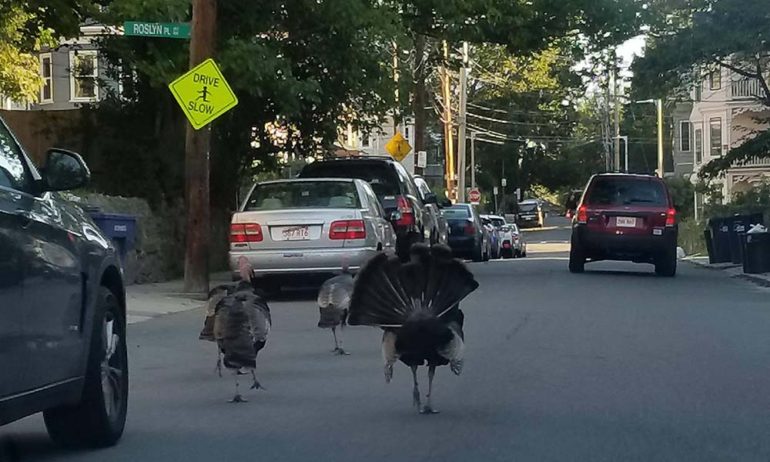
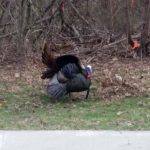
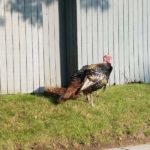

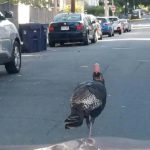
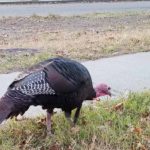
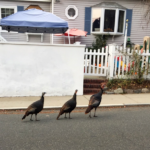
You must be logged in to post a comment.